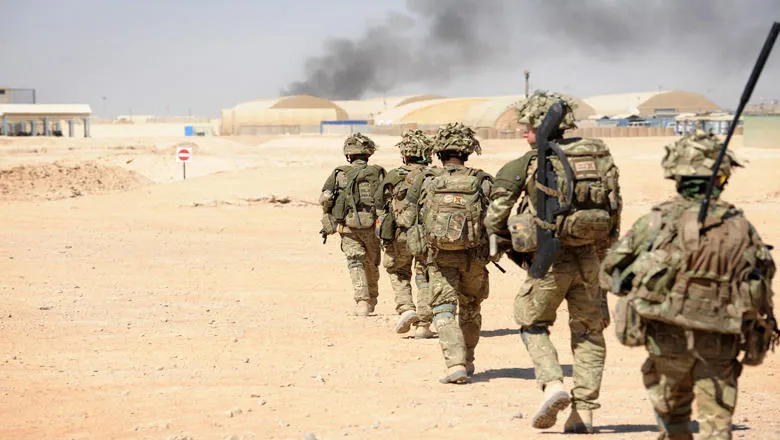“This paper provides an interesting exploration the relationship between serious injury and the effects that it can have on a person’s wellbeing. Our study finds that the type of injury sustained can influence the overall outcome. This is an important finding, as it could help to inform the type of care provided by clinicians in the future.”
Professor Nicola Fear, the study’s senior author from KCMHR
17 June 2022
Armed Forces Personnel who are injured in combat at greater risk of poor mental health
Members of the British Armed Forces who were physically injured while fighting in Afghanistan are more likely to experience poor mental health compared to their colleagues who did not experience a physical injury during deployment.

New research from the King’s Centre for Military Health Research (KCMHR) at King’s College London has found that members of the British Armed Forces who were physically injured while fighting in Afghanistan are more likely to experience poor mental health compared to their colleagues who did not experience a physical injury during deployment.
The research is part of the ADVANCE Study (Armed Services Trauma Rehabilitation Outcome Study), a collaboration between King’s College London, Imperial College London and the UK Ministry of Defence, which was set up to investigate the long-term physical and mental health outcomes of combat casualties from the UK Armed Forces following deployment to Afghanistan between 2002 and 2014.
The paper, which has been published in Lancet Psychiatry, found that military personnel who experienced significant physical injuries in combat were at greater risk of reporting feelings of depression, anxiety, and displayed symptoms common with a diagnosis of post-traumatic stress disorder (PTSD) than personnel who were also deployed but who did not sustain a physical injury. Personnel who had sustained an amputation as a result of their combat injury reported mental health outcomes that were largely similar to their uninjured counterparts, whereas those who sustained non-amputation related injuries, such as fragmentation wounds from blasts, gunshot wounds or burns, displayed the worst outcomes.
This paper included 1144 male combat veterans from the ADVANCE study. Of the group, 579 had received some form of injury while in combat, and of those 161 were amputees. All participants completed a physical health assessment as well as a confidential questionnaire on their mental health that explored, among multiple outcomes, depression, anxiety, and probable PTSD.
An analysis of the survey data revealed that rates of poor mental health were worse in all categories, with those that sustained a combat injury up to 67% more likely to report depression, anxiety or PTSD, compared to those that did not sustain an injury.
The researchers also found that the type of injury experienced by the participants influence the outcomes. Those participants who had undergone amputation as a result of their injury reported outcomes that were equivalent or only minimally different to participants from the uninjured group.
90% of all UK military personnel injuries can be attributed to improvised explosive devices, rocket propelled grenades, and gunshots. A total of 265 UK military personnel sustained a major limb amputation as a result of their deployment to Afghanistan between 2003 and 2014.
While those personnel who were physically injured were more likely to report symptoms of PTSD compared to the uninjured group, both injured and uninjured personnel reported higher rates of PTSD compared to the UK general population. Additionally, over 90% of those with symptoms of PTSD had comorbid depression or anxiety, indicating an increased psychological burden.
Daniel Dyball, PhD student and the paper’s first author from KCMHR said, “The study design of ADVANCE allows for a more accurate estimation of poor mental health outcomes amongst UK military injured personnel. The interesting result that amputees have comparable mental health outcomes to the uninjured group could be due to increased access to charity or therapeutic services, which we intend to explore more at a follow up assessment for the ADVANCE participants.
“We recommend to clinicians that they should routinely enquire about mental health with all of their serving and veteran patients who have served in conflicts such as Afghanistan. Whether they have obvious injuries or not.”
This study was possible thanks to funding from the ADVANCE charity.
Mental health outcomes of male UK military personnel deployed to Afghanistan and the role of combat injury: analysis of baseline data from the ADVANCE cohort study (DOI10.1016/S2215-0366(22)00112-2) (Daniel Dyball Alexander N Bennett de Susie Schofield Prof Paul Cullinan M De Christopher J Boos Prof Anthony M J Bull Prof Simon Wessely Sharon A M Stevelink Prof Nicola T Fear) was published in The Lancet Psychiatry.
For more information, please contact Patrick O’Brien (Senior Media Officer).




